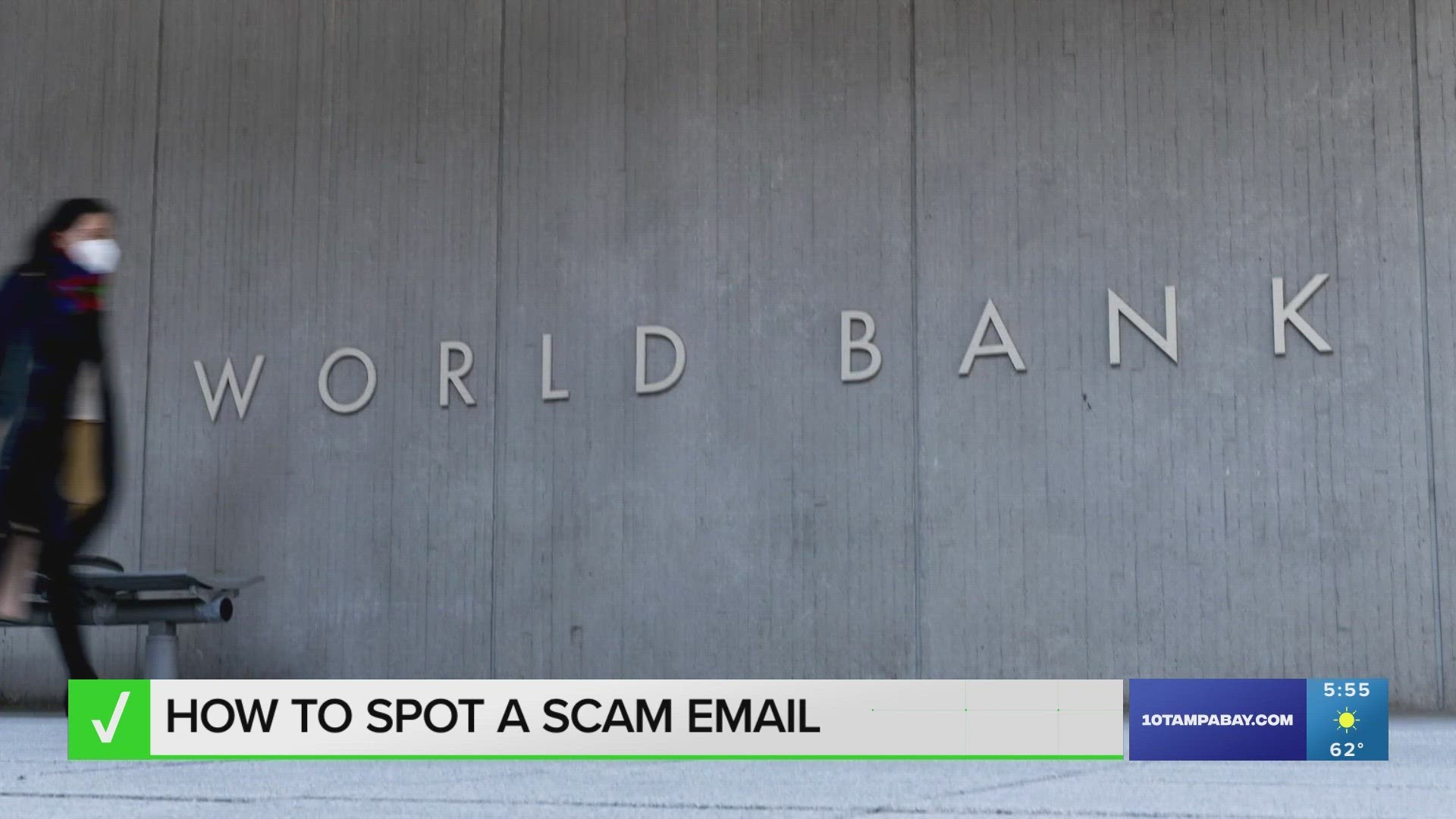ST. PETERSBURG, Fla. — At VERIFY, we are dedicated to telling you what is true and false. That includes showing you how to identify fraudulent emails, how scammers can impersonate companies to trick you, and how to protect yourself if you were a victim of a scam.
Several VERIFY viewers have contacted 10 Tampa Bay saying they’ve received messages about applying for grant money from the World Bank. In some cases, viewers say they’re also asked to pay a fee up front.
VERIFY viewer Bob T. in St. Petersburg said the message he received appeared to come from a friend and included a phone number to text. Eventually, he said he received an email with a link to apply to the World Bank’s “Monetary Grant Program.”
Skeptical it was a scam, Bob contacted VERIFY before clicking on any link.
THE QUESTION
Are emails offering individual grants from the World Bank legit?
THE SOURCES
THE ANSWER
No, emails offering individual grants from the World Bank are not legitimate. The World Bank says it does not offer financial assistance to individuals.
WHAT WE FOUND
The World Bank is an international organization owned by 189 member countries, with the U.S. government being its largest shareholder. It provides financing to developing countries to help them fight challenges like poverty, malnutrition, lack of access to education or electricity, climate change and other issues.
The World Bank says it does not provide loans directly to individuals and does not ask for any personal financial information.
A spokesperson told 10 Tampa Bay they’re aware of several scams in recent years using the World Bank name, including in 2019 and 2021. In some cases, scammers have created Facebook pages using the World Bank name to advertise quick loans. In other instances, so-called “advance fee fraud schemes” using the World Bank name have promised money in exchange for signatures or bank account information.
“The World Bank has no involvement in such schemes, and we would like to caution you to be wary of these and other similar solicitations that falsely claim to be affiliated with the World Bank,” it said in a 2023 statement.
Spotting email scams
If you’re not expecting a link, don’t click on it. You should be suspicious of emails that contain links from someone you don’t know or a text message from a number you don’t recognize.
In Bob’s case, this also applies if you get unexpected or out-of-character messages from someone you might know. This can happen if a person’s account has been hacked.
Scammers often try to trick you with a bad link by concealing the URL with a button or hyperlinked text, the Federal Trade Commission (FTC) says, like using the words “please click here” or “follow this link.” This makes it harder to tell where the link will take you.
The links can disguise malware or trick someone into sharing their personal or financial information.
Spelling errors or the messages’ tone containing a sense of urgency are also red flags.
Google also has a safe browsing site where you can submit a website to see whether it’s dangerous at the time you search it.
Reporting scam emails
You can report email scams to the FTC, Better Business Bureau (BBB) and others.
The FTC says you can file a claim or report fraud with the FTC online.
The BBB has a Scam Tracker on its website devoted to reporting potential illegal schemes or fraud. You can report a scam online.
The FBI has an Internet Crime Complaint Center (IC3) that allows individuals to report internet crimes. You can file a complaint here.
VERIFY’s Kelly Jones contributed to this report.

